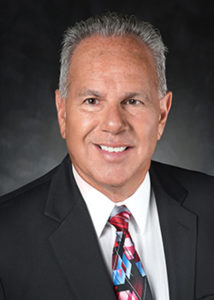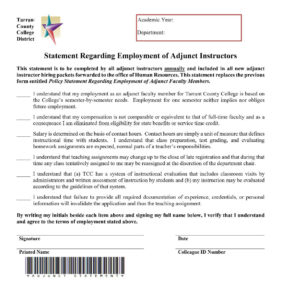Susan was excited about the chance to work at Tarrant County College (TCC). The single mom had been hired for a mid-level position in TCC’s human resources department. Just minutes into her first meeting with HR director Gloria Maddox-Powell, at The Cheesecake Factory downtown, Susan alleges Maddox-Powell gaslighted her. Susan said the director arrived with someone else and, at one point, allegedly left Susan alone with her. Susan said it was Mercedes Ramirez, TCC’s manager of special projects for HR, who allegedly described an “anonymous phone call” from a former colleague of Susan’s at a North Texas community college who had concerns about whether Susan would be a good fit for TCC’s HR department. Ramirez then described lengthy allegations that Susan gave preferential treatment to Hispanics and millennials. Susan said she was shocked, but since she had already quit her last job, she took the TCC position to be able to support her child.
Over the course of the next year and a half as a new TCC hire, Susan would learn that no one from her former workplace had called Maddox-Powell or Ramirez. One TCC employee confided to Susan that the two administrators allegedly frequently used open records requests to obtain embarrassing information about prospective employees.
“They tried to find any information to control me,” Susan recently told me in a phone interview — she is withholding her real, full name for fear of retaliation. Maddox-Powell “bragged about doing that.”
Susan describes her time at TCC as hell. Several former college workers whom I interviewed shared similar stories about Maddox-Powell’s allegedly divisive leadership.
The 57-year-old community college that spans several campuses across Tarrant County and serves 46,000 students per year has come under public scrutiny in recent weeks.

Courtesy of TCC
TCC’s board of trustees recently voted to terminate the contract of chancellor Eugene Giovannini which paid him $432,836 a year. Earlier this year and before his termination, the trustees placed Giovannini on paid administrative leave as an ongoing internal investigation examined his handling of the firing of Kristen Bennett, a former fundraising executive who is currently suing the college. One trustee cited the handling of Bennett’s termination as the main reason for the chancellor’s ouster.
In court documents tied to the lawsuit, Bennett’s attorney alleges that Giovannini retaliated against Bennett after she tried to address the poor workplace behavior of a woman who was allegedly dating Giovannini.
The attorney who filed the lawsuit, Frank Hill, said TCC has a history of illegal firings.
“The district has a long-standing system problem in failing to give basic due process, and it has already cost the district substantial sums of money,” Hill said, referring to one recent lawsuit (not related to Bennett) that TCC was forced to settle for an undisclosed amount (“ A Pattern of Poor Leadership?” March 18). “I lay the primary blame of that at the feet of Giovannini.”
The former employees who spoke to me said that TCC used to be a wonderful and uplifting place to work, adding that the hiring of Giovannini in 2016 and Maddox-Powell in 2019 created a toxic work environment that has sent employees fleeing.
My open records requests seeking employment figures before and after Maddox-Powell’s hiring have been blocked by TCC’s attorneys. The Texas Public Information Act requires governmental groups like TCC to make good faith efforts to release requested government documents to the public, but the college’s leaders have chosen to misuse the act by requiring that I resubmit my requests with specific legal verbiage to delay or block them.
“Maddox-Powell would divide and conquer departments, so people were afraid to talk to one another,” Susan said. “I was continuously oppressed, and it inhibited my ability to do what I was trained to do.”
I forwarded questions for Maddox-Powell and Ramirez to a TCC spokesperson who told me that the college does not comment on personnel issues.
*****
After a 20-plus year career as a seminar leader, platform public speaker, corporate trainer, HR consultant, and subject matter expert in HR law, Jenny, who is not sharing her real, full name for fear of retaliation, spent most of her career traveling the country and educating various clients on their rights and responsibilities under federal laws that mandate equal employment opportunities. She held executive-level positions in HR management before seeking an opportunity to join TCC’s HR department on an annual contract basis.
“Although I was new to higher education in a non-teaching position, I was confident that my previous experience and knowledge as an HR manager, equal employment opportunity consultant, and skilled educator on a public platform for years would be a positive match for the position sought,” Jenny said.
After a lengthy interview process, she joined TCC’s staff for the 2020-2021 academic year as coordinator of the college’s Family and Medical Leave Act (FMLA). Jenny was tasked with helping employees understand their rights and responsibilities under the federal act — something she took pride in. Jenny began working remotely in August of that year. Her immediate supervisor, Lorrie Ward, was new at the time and appeared unable to provide consistent answers to Jenny’s questions. Ward leaned heavily on her boss, Maddox-Powell, for help, Jenny alleges.
“During the first three weeks of employment, and after one week of general orientation, there was a lot of information to grasp and unexpected changes as I acclimated to the position,” Jenny recalled of that first month that she helped TCC employees apply for accommodations through the Americans with Disability Act (ADA).
Three weeks after starting her new job, she was placed on a disciplinary Performance Improvement Plan (PIP) drafted and presented by Maddox-Powell. Jenny provided me with a copy of the PIP.
“Maddox-Powell’s reasons were based on petty annoyances, negative stereotypes, subjective bias, and false assumptions about my abilities, traits, and work performance,” Jenny alleges. “Additionally, there was no previous verbal or written record of discussion or awareness of a concern as outlined in the PIP.”
Jenny was shocked when she learned why she was disciplined. One infraction, repeatedly showing up to meetings canceled by Maddox-Powell at the last minute, was an honest mistake. Another item placed on the PIP happened during an August phone call with Maddox-Powell, when Jenny said she forgot the name of a file. The PIP meant that Jenny was effectively on probation and ineligible for the types of contractual agreements that guarantee employees a full year of work.
“My job was placed in jeopardy because of such punitive action,” Jenny said. “Maddox-Powell cited many reasons that could not be justified with a relevant or plausible explanation. For example, I was accused of being a liar when I asked clarifying questions during a meeting about a document I had briefly reviewed.”
Based on one TCC HR document, Maddox-Powell wrote, “On August 28th, after being asked by our executive director to review the form she created to send to physicians prior to a later meeting to discuss it, you stated that you had read the form.”
The accusations, Jenny alleges, are baseless.

Courtesy of TCC
Based on TCC policy, the college sends letters to retained campus employees through the academic year that starts September 1. Maddox-Powell waited until the last day possible to give Jenny the PIP. Even with the disciplinary action looming over her, the new HR hire said she persevered and filed 91 FMLA forms by the end of October.
“Despite the PIP and brief learning curve, I successfully completed [my assignments] within 45 days; developed a detailed communication strategy for faculty, staff, and employees; redesigned spreadsheets for tracking purposes; and drafted a standard operating procedure for the ADA requests process, which ensured a legally compliant procedure,” Jenny said. “By late fall of 2020, after repeatedly requesting the FMLA training to assume the position for which I was hired, it was delayed indefinitely. I was denied repeatedly, and for five months, I was relegated to my remote office without work to perform.”
Jenny, whom I met in person during our first interview, is a self-assured, educated, and mature woman. If Maddox-Powell was looking for a subservient worker, Jenny was not that person.
“I did not hide my frustration with” Maddox-Powell’s poor leadership, Jenny said.
By March of last year, the new TCC employee had had enough. She filed a complaint in which she listed several grievances.
“The decision to enforce a wrongful and unjust PIP against me has resulted in the denial of the employment privilege and opportunity to perform the duties and responsibilities of the position for which I was hired,” part of the complaint reads. “After questioning the legitimacy and validity of the PIP, I have been labeled as an angry, defensive, and argumentative woman. I have been subjected to an extended probationary period of 90 days. I believe the extension is being used as a pretext to silence me from changing any future unjust or punitive actions against me.”
One month later, Jenny resigned. She felt her departure was validated after Maddox-Powell allegedly pushed out an elderly, legally blind adjunct professor, a potential violation of the ADA.
Jenny is now focused on her consultation business in which she educates clients about their workplace rights under state and federal law. It was only after leaving the college that she learned that other TCC employees were having similar experiences.
While the ouster of TCC’s chancellor has garnered local media coverage and statements by the college’s board of trustees, the internal problems plaguing TCC’s HR department have not been publicly acknowledged by community college leaders. Attorney Hill, who has successfully sued TCC for wrongful terminations multiple time, sees Giovannini as the primary source of malfeasance at the college while several current and former TCC employees told me that the issues of retaliatory leadership are a pervasive problem across the campuses.
In March, TCC’s trustees voted to allocate up to $200,000 for services from the Dallas law firm Locke Lord to investigate complaints filed with the board by college employees. The board passed the agenda item without discussion. One TCC insider said Locke Lorde will investigate numerous complaints about TCC’s HR leadership.
*****
Throughout his 11 years working for TCC as coordinator of measurement and evaluation, Karl Ronacher saw a steady erosion of faculty morale. TCC’s previous head of HR, Dr. Ricardo Coronado, was tough and smart and always looking out for the best interests of the college, Ronacher said.
Coronado “always had an open-door policy,” he continued. “He never held grudges against any employee. He was the best supervisor I have had in my 32-year career.”

Photo by Edward Brown
Ronacher’s first negative interaction with Maddox-Powell happened shortly after the onset of the 2020 pandemic. Ronacher believes she targeted experienced employees like him because he feels she is insecure and underqualified. TCC staff have so far refused to release my requested copy of Maddox-Powell’s resume.
“The employees were sent to work from home,” said Ronacher, who specializes in data management and evaluation. “I was ordered to sort mail and complete other duties for which I was not qualified. This was an example of trying to make me miserable in an attempt to get me to leave.”
Ronacher provided me with a copy of TCC’s employee standards of conduct that forbids workers from accepting tasks for which they are not qualified. Ronacher alleges that Ramirez, TCC’s manager of special projects, would frequently ask him to perform basic math problems that a sixth grader should know. Maddox-Powell, he continued, constantly criticized TCC’s HR program and belittled its workers. Ronacher believes HR director Maddox-Powell’s alleged derogatory demeanor was intended to intimidate everyone who worked below her and to make her appear to be the solution to problems that never existed before her tenure.
“The philosophy used to be that we help employees become better employees,” Ronacher said. “We taught them how to deal with conflict and how to enhance their careers. It was truly a good place to work. Maddox-Powell is a big bully. Her mode of operation is to pick on people she wants to get rid of.”
In January 2021, Ronacher retired, largely to escape having to deal with the HR department’s toxic environment, and his wasn’t the only exodus around that time.
Rebecca, who is not using her real, full name for fear of retaliation, recently left TCC’s HR department after two years of witnessing what she described as unsettling actions on the part of Maddox-Powell. The HR director created unnecessary high-level positions, Rebecca alleges, because she did not have the skill or experience to manage the department. The newly created positions, Rebecca alleges, would complete the tasks that Maddox-Powell could not handle herself.
Before Maddox-Powell headed the department, employees were encouraged to discuss salary changes and promotions, Rebecca said. Under Maddox-Powell, Rebecca alleges, employees were expected to do as they were told. Rebecca alleges that Maddox-Powell gave her friend Ramirez a significant raise without requiring more work and without the education requirements for the position, director of special projects.
“To me, that would be favoritism,” Rebecca said. Ramirez was given a job title, a pay raise, but “no change in job description. We saw morale lower. We felt demeaned. We were told that [Maddox-Powell] had an open-door policy, but you could tell that she had her favorites. When I resigned, she offered my position to another co-worker and gave them a pay increase of more than what I made. I was labeled toxic. If you knew more than she did, she felt threatened.”
Susan, who wrote an open letter to TCC’s leadership in December, echoed many of the experiences cited by Rebecca.
Maddox-Powell “told me that I was a poor leader,” Susan said. “She never met with my team. She never [acknowledged] a single thing we produced. Everything she said was wild verbal accusations that weren’t grounded in reality.”
Ronacher said the dysfunction in TCC’s HR department is partly the result of poor leadership at the community college.
“Giovannini has this position that he really cares about the community and the students,” Ronacher said. “The people that he has put in charge, especially over HR, are unethical. They deliberately violate their own policies. And that concerns me.”
*****
Over the course of my several weeks of research for this story, current and former TCC instructors reached out to us with their own horror stories that have ties to the college’s HR department. One current adjunct instructor who asked to go by Sam to protect his privacy said adjuncts were recently given contracts that bar them from state unemployment benefits — an act that is expressly prohibited by the Texas Workforce Commission, the governmental group that provides unemployment benefits (“ Higher Ed, Lower Wages,” March 30).
Part of Texas’ labor code reads, “An employer may not require or accept a waiver of a right of an individual employed by the employer.”
One former adjunct who asked that we conceal his identity for fear of reprisal said he was terminated because his dean didn’t want to accommodate his disabilities. Unable to drive, the adjunct said he often could not afford Uber rides to travel to and from work, adding that his pay (around $500 per class per month for adjuncts) was not enough to make buying frequent trips affordable. The adjunct said TCC can expect a federal investigation over his wrongful termination in the near future. He asked our magazine to share his message with our readers.
“Tarrant County, this is your junior college,” he said. “It needs to be fixed. They receive money from the federal government, state, and county. As a Tarrant County resident, I wouldn’t give them a dime if I had my way about it.”
Susan and Rebecca told me they have found rewarding work outside of TCC. Time affords perspective, and the two former county college employees now understand that their past leaders created a hostile work environment that lowered morale and impeded productivity. When they talk to their friends who stayed on at TCC, the feedback is that things are as bad as ever at the college’s HR department.
“TCC is a phenomenal institution,” Ronacher said. “They have helped a lot of people. They are a huge organization, and these people are running it into the ground. Good people are leaving. I wanted to retire when my wife retired, but I went ahead and retired a year ago because I qualified. I was sick of dealing with this shit — the harassment, having me do things I’m not qualified to do.”
Before Jenny resigned from TCC, she reached out to Maddox-Powell to have one final face-to-face discussion about her boss’ alleged acts of intimidation. Jenny said Maddox-Powell never responded. Jenny said that someone at the college needs to hold the head of HR responsible for the torment she caused former and current employees.
“When I joined, I was very excited,” Jenny said. “I was tasked with ensuring that the employees’ rights will be recognized. Within three weeks, I’m on a PIP. What happened to me should never have happened.”












I am a former employee of TCC. I was there for 10 years. The hostility, harassment, sexual harassment, non-equal opportunity, are more than just a few people in HR. The Southeast campus is a whole new ballpark for what is really going on. I and many others were sexually harassed by the electrician, but we were all too scared to report him because of fear of retaliation or harassment from other higher ups. [One director] would make up lies if she didn’t like you such as “she would call your office numerous times for an hour or so and we weren’t available, yet there are no missed call logs on our phone system”. [One director] would hire “the pretty girls” or “the shoe in adjuncts that did what he wanted them to do.” One employee was fired because her LOAs didnt match her time cards even though the hours reported each week were correct. We were told to interview 6 candidates but move certain candidates to the 2nd round based on skin color. [One director] also made derogatory remarks about his AAs. There have been two AAs that worked hard every single day and busted our asses to keep that division running while his AA sat on her ass doing nothing. He yelled at us, put us on pips for no reason, accused departments of buying office supplies for other areas. He treated people badly when he was having a poor day. He was hostile at times to a point of making people cry. There are so many other things that have happened I have stories for days!
TCC used to be the place to work. I would go as far to say that it started going downhill after Dr. De la Garza was pushed out. South campus in particular was a hot bed of illegal practices for which HR blatantly ignored. Peter Jordan was by far the worst thing to encounter and bragged about the numerous lawsuits against him. HR did nothing with the complaints I filed against him. The issues with TCC’s HR department run deeper than just Giovannini’s reign. The Board needs to be held accountable and they desperately need term limits.
TCC was a wonderful place when Erma Johnson Hadley was Chancellor. Giovannini’s primary goal was to undo all of the progressive things she did – likely to “Make TCC great again.” Sound familiar? It seems he has befallen the same fate as his washed-up idol.
The issues are very widespread. I’ve worked at many colleges in my lifetime and especially recently, I cannot get away fast enough. The workplace is incredibly toxic and caused by higher ups who have power issues and push their own responsibilities on others.
Yup! Even worse on IT side of things. They are WASTING hundreds of thousands of taxpayer dollars on poorly researched, unneeded technology, with similarly hostile, clueless upper management.
I am a current employee with TCC, and after more than a year with the college I am desperately seeking a new employer. The inequities and low morale do not exist only with HR. They also exist in other departments.
I can speak authoritatively about the IT department. We’ve experienced an extremely high amount of turn-over over the past year, and it isn’t about to stop. This is the result of inept top-level management who continually make financial, technical, and organizational changes that ultimately undermine the college’s ability to provide reliable and secure IT services.
So many people are moved into positions of authority for which the are not technically qualified, while those who merit recognition are kept in low-paying positions while tasked with producing the work that would make their incompetent bosses look good.
We use to have good management that understood technology and its role in education, but after Giovannini was hired he began replacing our department leadership with unqualified personnel, who in turn brought in their friends.
If the Fort Worth Weekly wants another expose, it should start looking at where our IT budget and taxpayer dollars went under current leadership.
TCC is a sinking ship that only the rats are trying to save. Personally, I’d rather drown trying to swim to shore somewhere else.
I agree with the comments above. I have been with Tarrant County College for 20 plus years and the culture and moral of the whole organization has gone downhill. Giovannini has turned this place into a hell hole with no regards to faculty and staff that work their asses off to the betterment of the students and community.
The IT department is also another department that spends millions of dollars on horrible applications, moved the helpdesk to an outsourced company that does not know the needs of the school, also outsourced a company to handle the printers that don’t work half of the time. While in the mean time the big bosses get paid a crazy amount of money while the little people get paid peanuts with no room to advance in the organization, hence the high turn over rate this past year.
The HR dept is a joke as well.
There is no way to advance in this organization unless you’re literally sleeping with someone in top management.
I’m a former employee and it is a terrible place to work. Super toxic work environment. Think super scummy, early 90’s, corporate culture. Leadership didn’t care about their employees which led to the handling of employee issues being nonexistent. We had a toxic employee in the department (insubordinate, insulant, created an environment of fear, created a whole smear campaign against us to the whole campus and administration, and etc.) We all put in HR complaints about this person and it was kicked back to our manager and director, who also had issues with this person. I finally just wrote a letter to HR detailing the ongoing problem. They opened an investigation and found evidence that corroborated my account of what was happening and transferred that person to a different campus. Meanwhile, I’m the one that gets sent to their lawyer and threatened.
They like to push their authority around and intimidate people there. They keep toxic employees because they are just like them. Most of the administration, leadership, and board needs to be gone.
I am a recent employee not featured in this article. Not all of HR is bad. It is the current leadership. The lower level HR employees are struggling with morale and are trying to get out. This are disheartened by what they are seeing and hearing in their own department as well as throughout the district. They are hurting because they cannot do anything to change it. They SEE the problems at campuses and other District offices but upper level management does not care. Just about anyone hired before 2020 is considered to have no critical thinking skills, no customer service skills, and cannot be trusted. TCC is a sad and toxic environment.
Former TCC employee – All of the experiences here line up with my experiences.
To give a few examples of instances I experienced:
1) I was a finalist for a position that I did not end up getting (I later got a different position at a different campus). I later found out the reason I did not get that position was because [redacted] forced the search committee to hire a man over me (a woman). I was more experienced and more highly recommend by the committee, but still he forced them to hire the man.
2) During my first few weeks I attended a presentation about staff evaluations given by [redacted]. She told the entire group of us to electronically sign at least two previous years reviews of all of our staff. When questioned as to what to do if we were not employed by TCC at that time she said to sign it anyway. I pointed out that this would be a falsification of a government document. She said to do it anyway or we would be neglecting our job duties.
3) During the pandemic, [redacted] eliminated hundreds of on-call positions from multiple departments without consulting supervisors, asking about duties, or providing context for the elimination of the positions. In fact, the direct supervisors of these positions did not know they were eliminated until the former employees informed them.
4) I requested ADA accommodations (requested at the urging of my doctor) toward the end of the pandemic due to a temporary disability. I would only need the requested accommodations for approximately 6 weeks from when I requested them. I was told they would not meet or make a decisions for at least another 4 weeks and I would not be able to have the accommodations in place during that time. I was told that if I needed it so bad I could take unpaid leave.
Not only are many of these issues illegal, but that are harming what could be a great community resource. There are still good people at TCC, but there should be a mass culling of the toxic individuals that make up the majority of the leadership. [Redacted], [Redacted], and several others should be at the top of the list.
I worked for Maddox-Powell at Pulaski Tech in Arkansas over 10 years ago and we had the exact same experiences with her. She had everyone in upper administration convinced we were all disgruntled employees and she was our victim. She wasn’t in HR then but filing a grievance wouldn’t have done any good with her director so gaslit. Retaliation was definitely a concern for us as well. I guess she’s been terrorizing employees for years.
I worked with Gloria Maddox Powell at what is now referred to as the UA-PTC and this article does not surprise me at all. Karma is something else and all wrong doing eventually catches up with you so I guess her time has come. I hope that she can not lie her way out of destroying more lives.
Didn’t even last a year, worst full time job I’ve ever had, and I’ve worked for two other community college systems. My department was a revolving door. People don’t just walk away from a good salary, every holiday off under the sun, great benefits and a pension. I wondered why HR wasn’t seeming to notice the ridiculousness going on in our area, now I know why. Sad. Hope she was worth it Eugene.